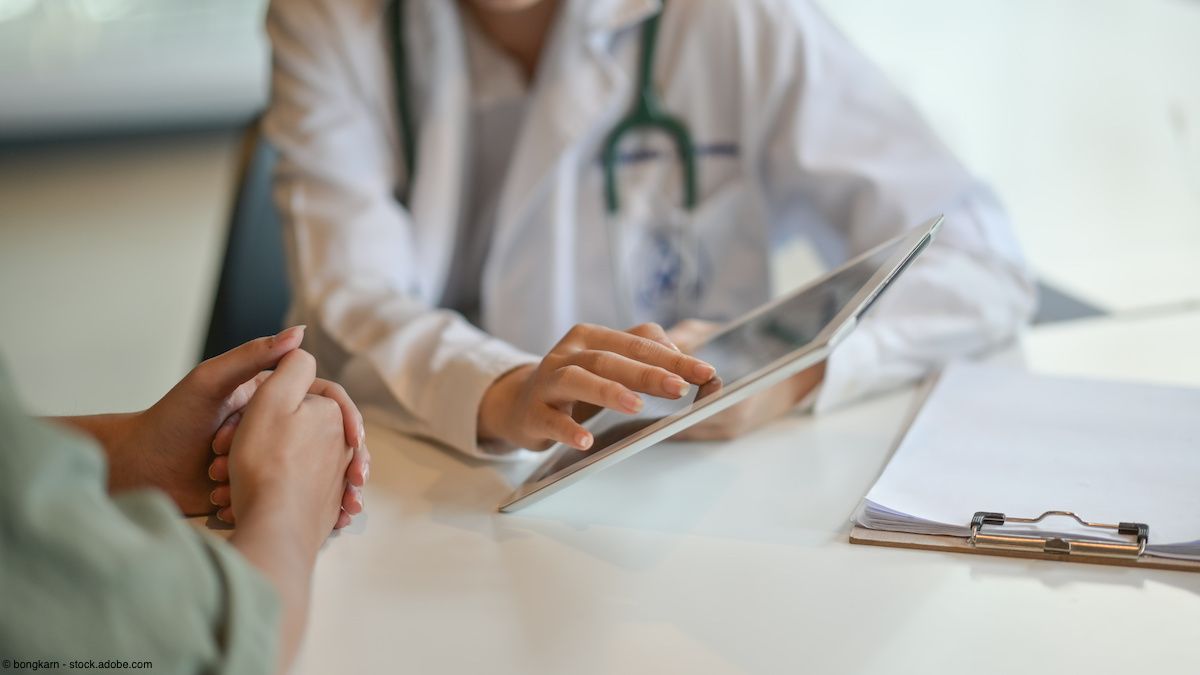News
Article
Treatment begins in study of Revi system for urge urinary incontinence
Author(s):
The post-market RESTORE trial plans to enroll 150 patients with urge urinary incontinence across 20 clinical trial sites in the US.
The first patient has been treated in the RESTORE study (NCT06217328), assessing the efficacy of the Revi system for the treatment of patients with urge urinary incontinence (UUI), according to a news release from BlueWind Medical, the developer of the therapy.1
In August 2023, the FDA granted a De Novo marketing authorization to the Revi System for the treatment of patients with UUI.

The Revi System is a minimally invasive, implantable tibial neuromodulation device for the treatment of patients with UUI. The first implantation for the study was done by Osvaldo F. Padron, MD, who is a urologist at Florida Urology Partners in Tampa, Florida.
“Urge urinary incontinence is disruptive, embarrassing, and causes undue stress in people's lives. Current treatments work for some people, but not most. There has been a real need for a more patient-centric and minimally invasive treatment option for people," said Padron in the news release.1 "I am pleased to have treated the first patient with the Revi System as part of the RESTORE study, an important clinical study that will help advance treatment options for people who suffer from urge urinary incontinence. Our site is recruiting additional qualifying study participants, and I encourage people to apply."
According to BlueWind Medical, the RESTORE trial was initiated to provide further data on the efficacy of the Revi System in reducing UUI episodes.
In total, the post-market trial plans to enroll 150 patients with UUI across 20 clinical trial sites in the US. Patients enrolled in the study will be randomly assigned 2:1 to either treatment with the Revi System or to delayed activation, in which patients will be implanted with the device but activation will be delayed until 4 months post-implantation.
The primary end point for the study is the superiority of therapy with the Revi System vs non-active therapy in patients with UUI, as measured at 4-month follow-up.
Dan Lemaitre, CEO of BlueWind Medical, concluded in the news release, "This is a great day in our collective journey to bring more convenient, comfortable, and patient-centric treatment options to people suffering from the debilitating symptoms of urge urinary incontinence. We are so grateful to Dr. Padron for treating the first patient in this critical research effort to help transform the treatment paradigm for UUI.”1
Additional data on the Revi system
In August 2023, the FDA granted a De Novo marketing authorization to the Revi System for the treatment of patients with UUI.3
The agency’s decision to allow BlueWind to market the device was based on results from the OASIS trial,4 in which Revi demonstrated significant efficacy in treating women with UUI. Specifically, the study met its primary end point with 76.4% of patients having a 50% or higher reduction in incontinence episodes at 6 months (P < .0001). Data reported at 12-month follow-up showed that 82% of patients who completed the study had at least a 50% reduction in UUI episodes, and 49.6% of patients were completely dry during a 3 consecutive day evaluation.
The investigators also reported that 74% of patients at 6 months and 80.1% of patients at 12 months experienced an improvement in urgency episodes and voids (P < .0001). Further, 84.6% of patients at 12-month follow-up experienced at least a 10-point improvement (minimal important difference) in health-related quality of life (P < .0001).
Regarding safety, all adverse events (AEs) were considered to be mild or moderate, and there were no serious procedure- or device-related AEs reported.
In total, the prospective, single-arm, open-label OASIS study included 151 women with UUI who were enrolled across 23 sites in the US and Europe. Of the total population, 139 patients completed the study.
References
1. First patient in the RESTORE clinical study of Revi system for urge urinary incontinence treated in Tampa, Florida. News release. BlueWind Medical. February 28, 2024. Accessed February 29, 2024. https://www.prnewswire.com/news-releases/first-patient-in-the-restore-clinical-study-of-revi-system-for-urge-urinary-incontinence-treated-in-tampa-florida-302073158.html
2. RESTORE: An RCT to evaulate the efficacy of the Revi system. ClinicalTrials.gov. Last updated January 24, 2024. Accessed February 29, 2024. https://clinicaltrials.gov/study/NCT06217328
3. BlueWind Medical's Revi system secures U.S. FDA De Novo classification grant for the treatment of urgency incontinence. Published online August 17, 2023. Accessed February 29, 2024. https://www.prnewswire.com/news-releases/bluewind-medicals-revi-system-secures-us-fda-de-novo-classification-grant-for-the-treatment-of-urgency-incontinence-301903199.html?tc=eml_cleartime
4. Heesakkers J, Digesu A, Sutherland S, et al. Pivotal study of a novel wirelessly powered, patient tailored programmed, tibial neurostimulator for the treatment of patients with overactive bladder. Presented at: American Urological Association Annual Meeting, April 28-May 1, Chicago. Abstract LBA01-05
Newsletter
Stay current with the latest urology news and practice-changing insights — sign up now for the essential updates every urologist needs.
















